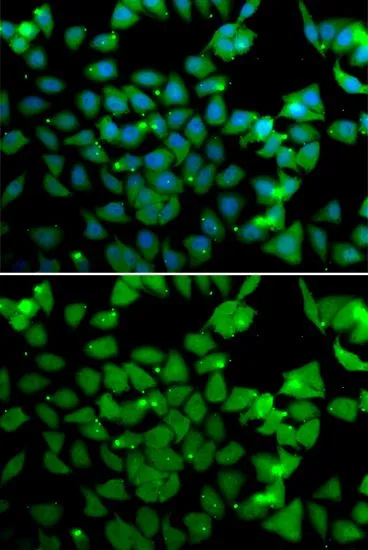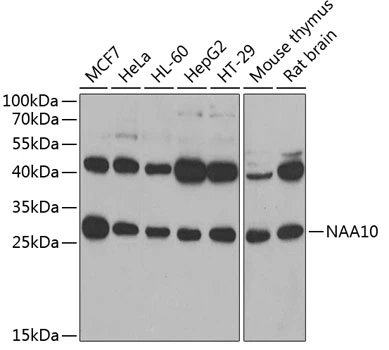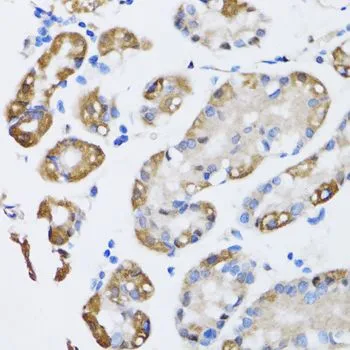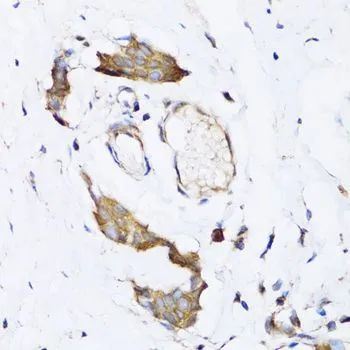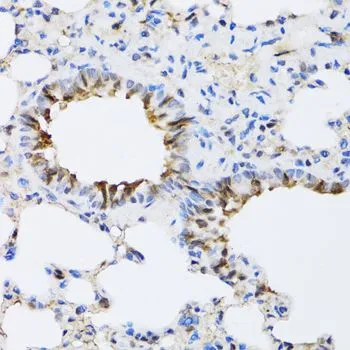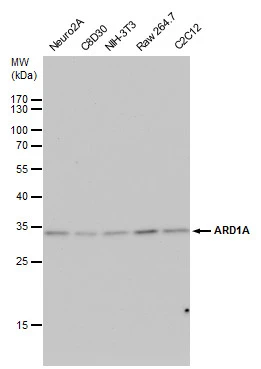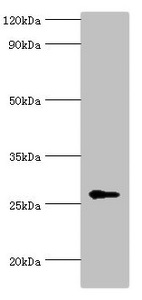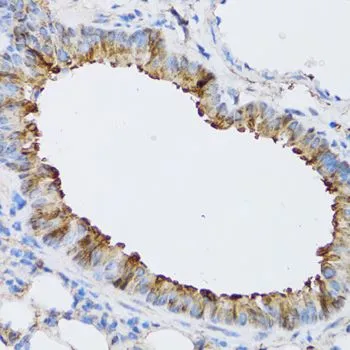
IHC-P analysis of mouse lung tissue using GTX64704 ARD1A antibody. Dilution : 1:100
ARD1A antibody
GTX64704
ApplicationsImmunoFluorescence, Western Blot, ImmunoCytoChemistry, ImmunoHistoChemistry, ImmunoHistoChemistry Paraffin
Product group Antibodies
ReactivityHuman, Mouse, Rat
TargetNAA10
Overview
- SupplierGeneTex
- Product NameARD1A antibody
- Delivery Days Customer9
- Application Supplier NoteWB: 1:500 - 1:2000. ICC/IF: 1:50 - 1:100. IHC-P: 1:50 - 1:200. *Optimal dilutions/concentrations should be determined by the researcher.Not tested in other applications.
- ApplicationsImmunoFluorescence, Western Blot, ImmunoCytoChemistry, ImmunoHistoChemistry, ImmunoHistoChemistry Paraffin
- CertificationResearch Use Only
- ClonalityPolyclonal
- ConjugateUnconjugated
- Gene ID8260
- Target nameNAA10
- Target descriptionN-alpha-acetyltransferase 10, NatA catalytic subunit
- Target synonymsARD1, ARD1A, ARD1P, DXS707, LZMS, MAA, MCOPS1, NATD, OGDNS, TE2, hARD1, N-alpha-acetyltransferase 10, ARD1 homolog A, N-acetyltransferase, N-acetyltransferase ARD1, human homolog of, N-terminal acetyltransferase complex ARD1 subunit homolog A, arrest defective protein 1, microphthalmia or anophthalmia and associated anomalies, natA catalytic subunit Naa10
- HostRabbit
- IsotypeIgG
- Protein IDP41227
- Protein NameN-alpha-acetyltransferase 10
- Scientific DescriptionN-alpha-acetylation is among the most common post-translational protein modifications in eukaryotic cells. This process involves the transfer of an acetyl group from acetyl-coenzyme A to the alpha-amino group on a nascent polypeptide and is essential for normal cell function. This gene encodes an N-terminal acetyltransferase that functions as the catalytic subunit of the major amino-terminal acetyltransferase A complex. Mutations in this gene are the cause of Ogden syndrome. Alternate splicing results in multiple transcript variants. [provided by RefSeq, Jan 2012]
- ReactivityHuman, Mouse, Rat
- Storage Instruction-20°C or -80°C,2°C to 8°C
- UNSPSC12352203

